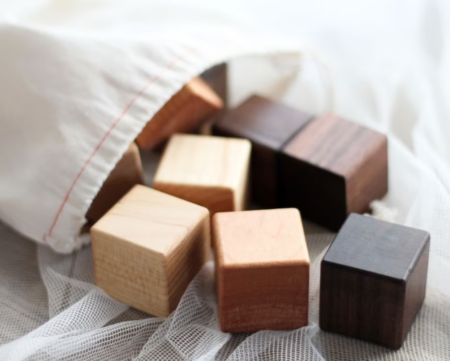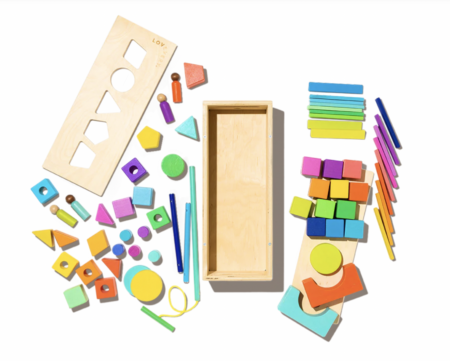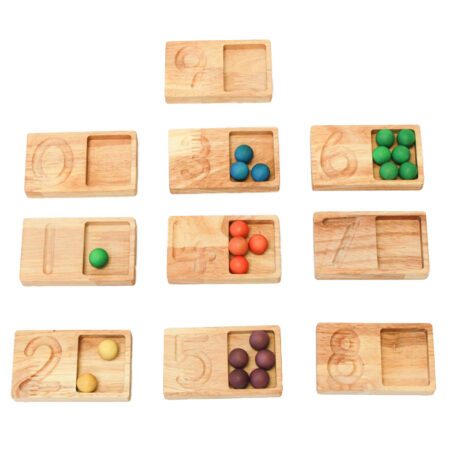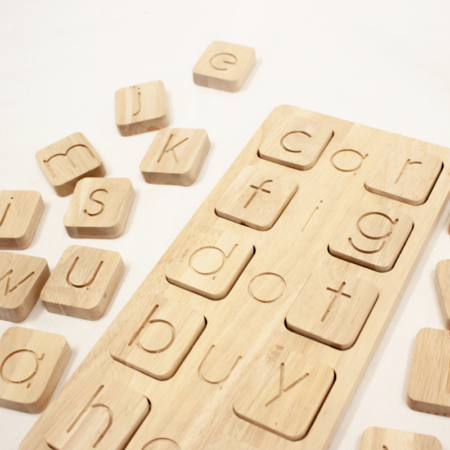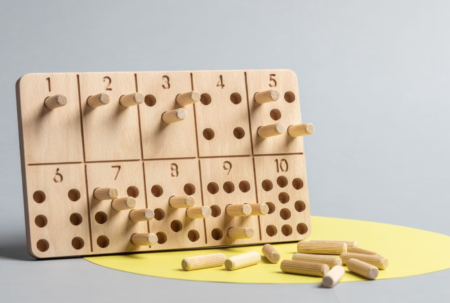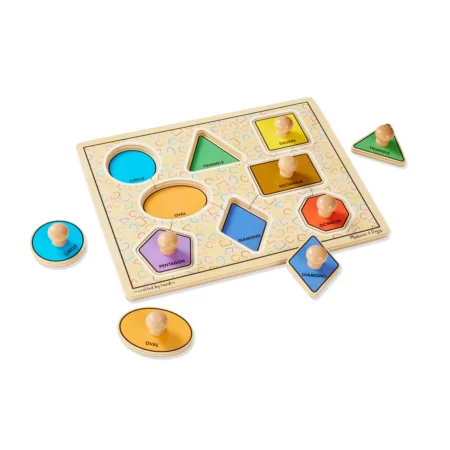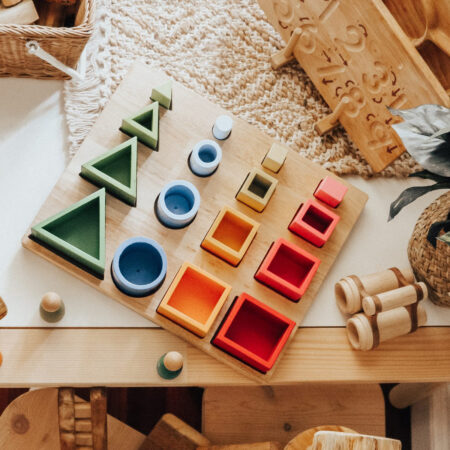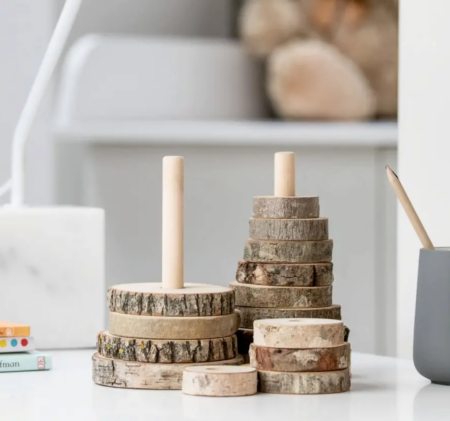It’s science: Montessori fosters ‘wellbeing’ through life—and these Montessori toys help you start at home
In the words of Maria Montessori, "Play is the work of the child."

@Anikona_ at Twenty20
We independently select and share the products we love—and may receive a commission if you choose to buy.
Most of us will agree that early childhood education is about more than learning letters and numbers. During these formative years, children are also in a great position to develop essential life skills, build beneficial traits and grow their emotional intelligence—and new research shows that Montessori schools are particularly successful at fostering students’ long-term psychological health and wellbeing.
There’s no need to wait until preschool, either: Parents can jumpstart Montessori learning at home by offering open-ended Montessori toys, practical life experiences and child-directed play opportunities.
What are the benefits of Montessori education?
According to a study published in the journal “Frontiers in Psychology” in November 2021, the benefits of Montessori education extend beyond the early years. Children who attend some amount of Montessori school go on to enjoy more general wellbeing throughout their lives. As the study’s authors said in their report, “Wellbeing, or how people think and feel about their lives, predicts important life outcomes from happiness to health to longevity.”
For the study, researchers worked with 1,905 U.S. adults between the ages of 18 and 81. Approximately half of the group attended Montessori school during childhood while the other half had conventional schooling. The study participants then completed a large set of scales designed to assess their wellbeing in adulthood. Across the board, even holding for demographic variables, the researchers found that adults who had Montessori schooling reported more general wellbeing, engagement, social trust and self-confidence.
“What surprised us is that pretty much everything in the sink turned out significant—on almost every survey, people who had spent at least two years in Montessori had higher wellbeing than people who never went to Montessori,” Angeline Lillard, one of the study’s authors, told Forbes. “This was true even among the sub-sample who attended private schools for their entire pre-college lives. We also found that the longer one had attended a Montessori school, the higher their level of wellbeing.”
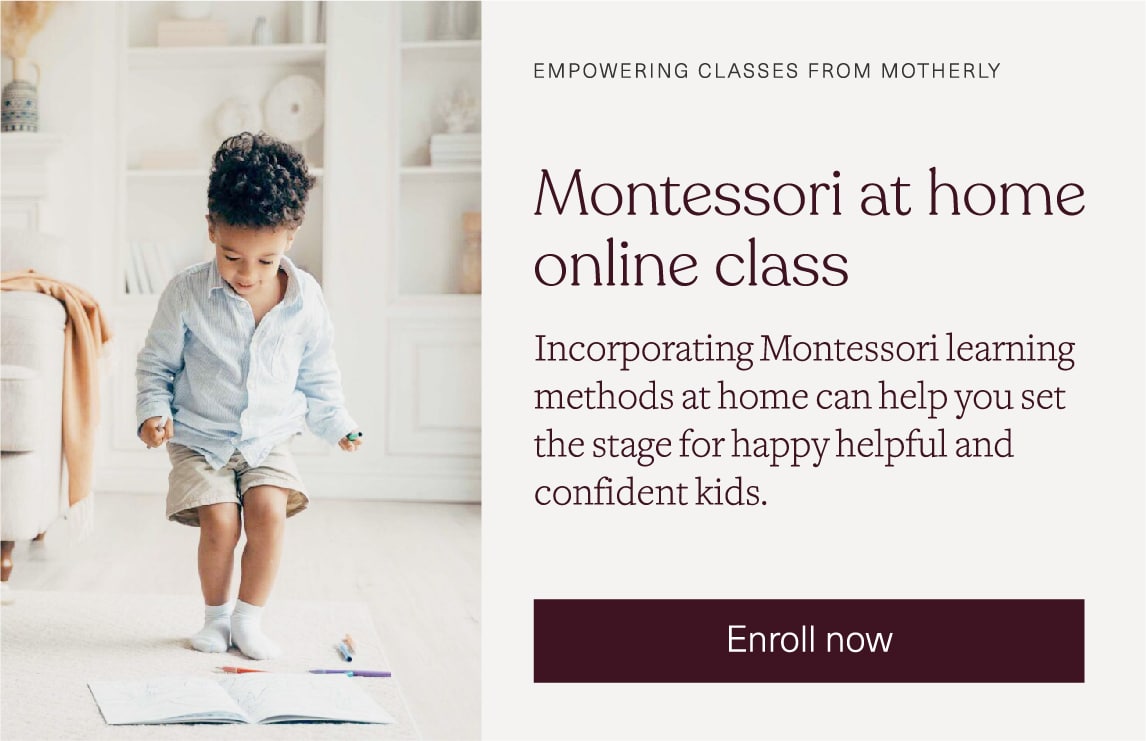
Why are Montessori education methods effective?
The researchers hypothesize the link between Montessori learning during childhood and adult wellbeing may be credited to the Montessori principles that promote self-determination, engagement in meaningful activities and social stability among groups of students.
For example, in the typical Montessori classroom, children select what they want to work on during the day, which allows them to explore their interests and feel a clear sense of meaning with their work. Older students are also encouraged to help younger students while the social bond in the classroom is reinforced.
Although the researchers say further studies would be beneficial, this report is strong evidence for the benefits of Montessori learning—which can be incorporated into the home well before children hit preschool age.
How can parents practice Montessori at home?
Whether your child will go to a Montessori school or not, there are many ways to practice the fundamentals of the Montessori philosophy at home. By thoughtfully preparing a learning environment in which your child can engage in interesting and developmentally appropriate play, you can help them build their independence and confidence.
When it comes to Montessori toys, simple toys that promote open-ended play are ideal. As Montessori expert Stacy Keane said for Motherly, a flashy, battery-operated toy might catch your child’s attention and provide entertainment. However, “The more children are able to use their hands to engage with child-operated toys, the [more able] they will be to solve problems and experience their environment and the more they will discover.”
By placing toys on low shelves, your child will feel encouraged to select what they want to do and play independently. Likewise, inviting them to work on age-appropriate practical life skills—like sweeping, cleaning dishes, folding clothes—will help them feel proud of their role within the family.
10 wooden toys that showcase the benefits of Montessori education
A version of this article was published January 3, 2022. It has been updated.
